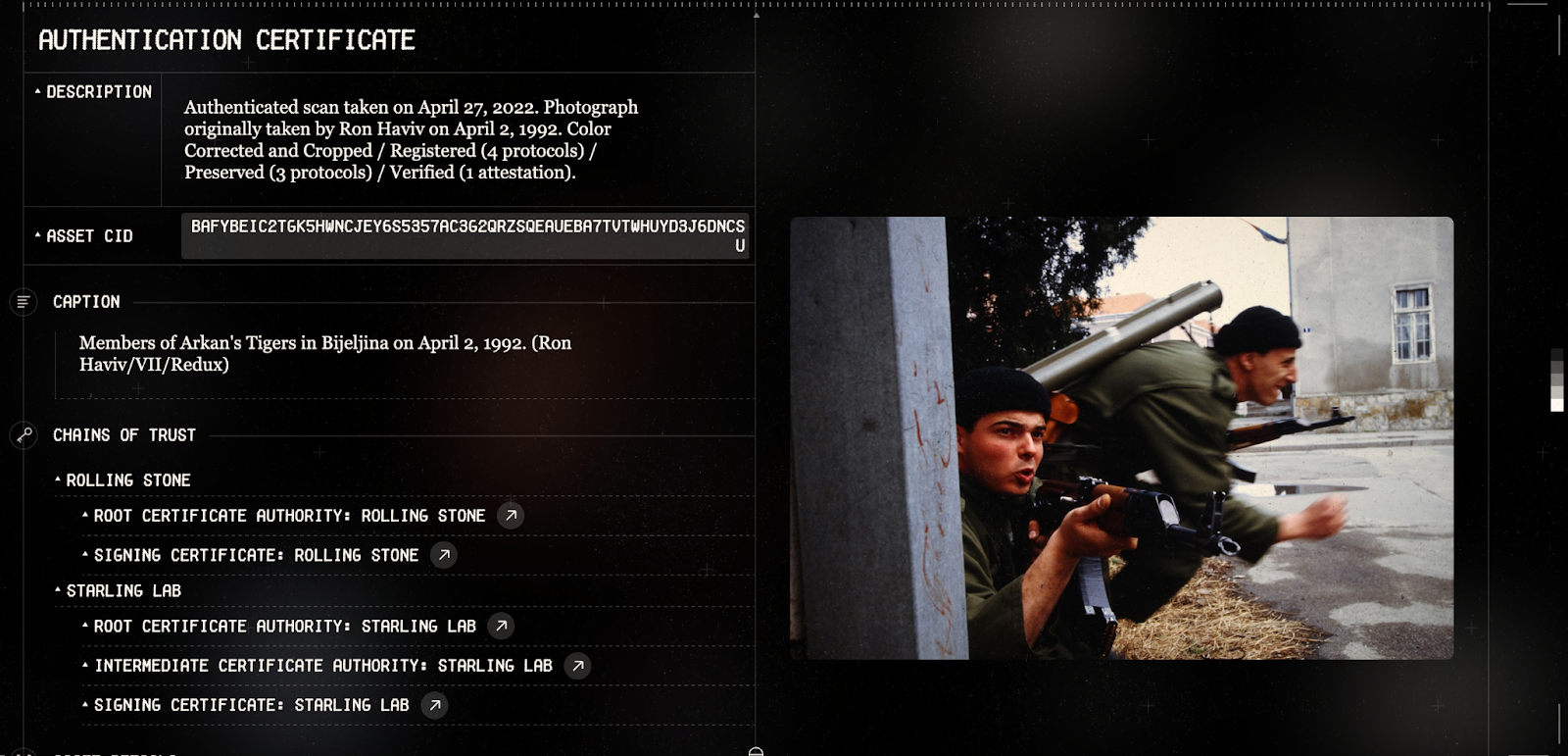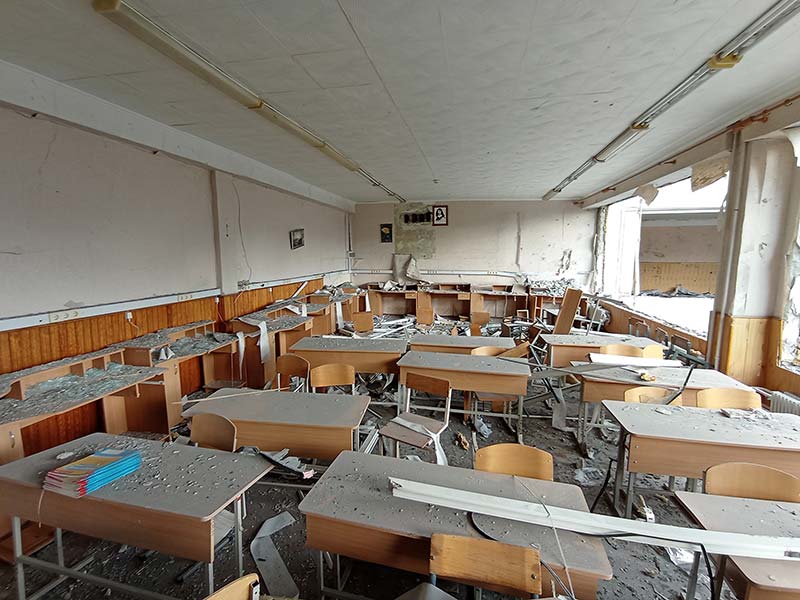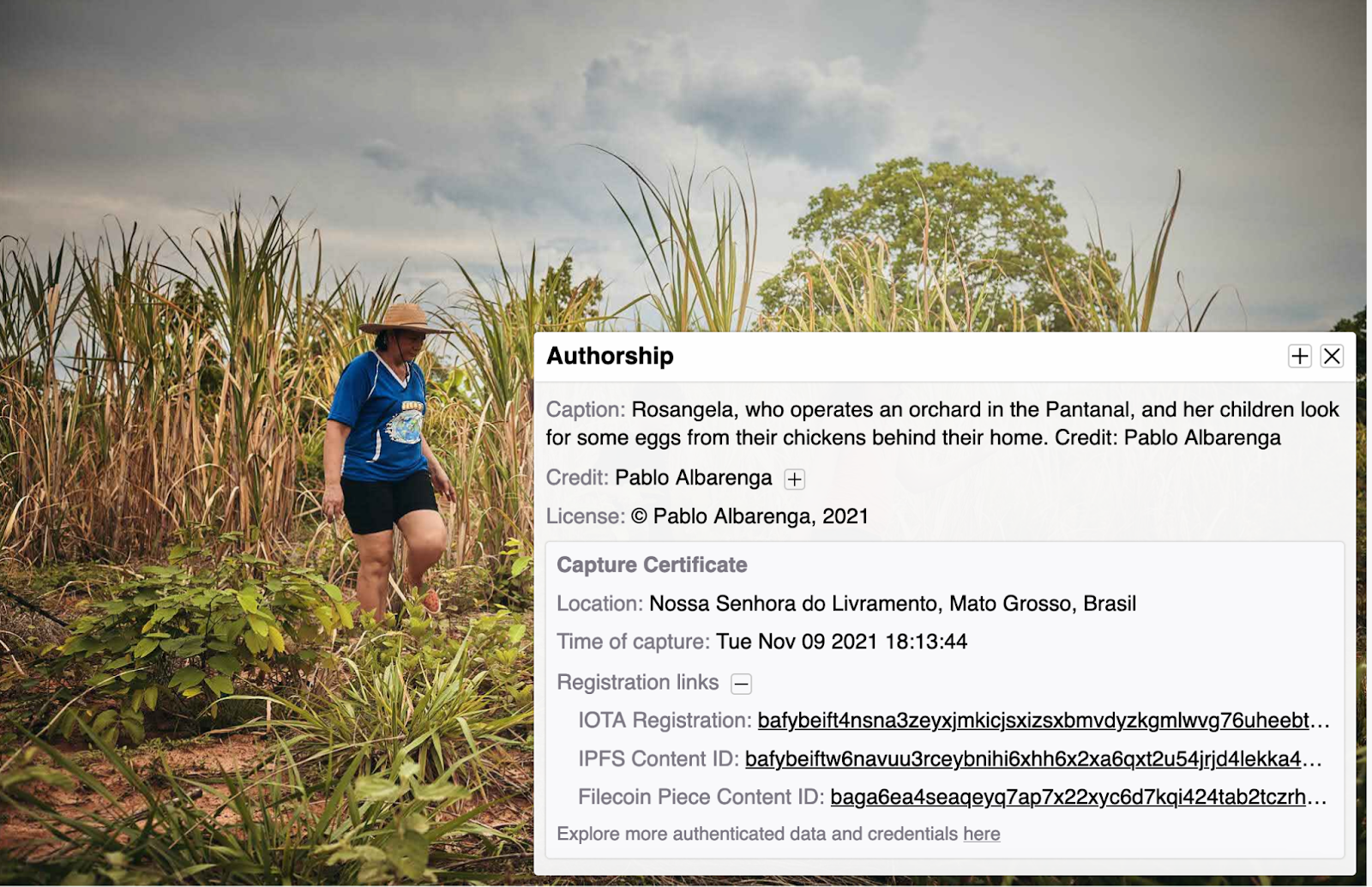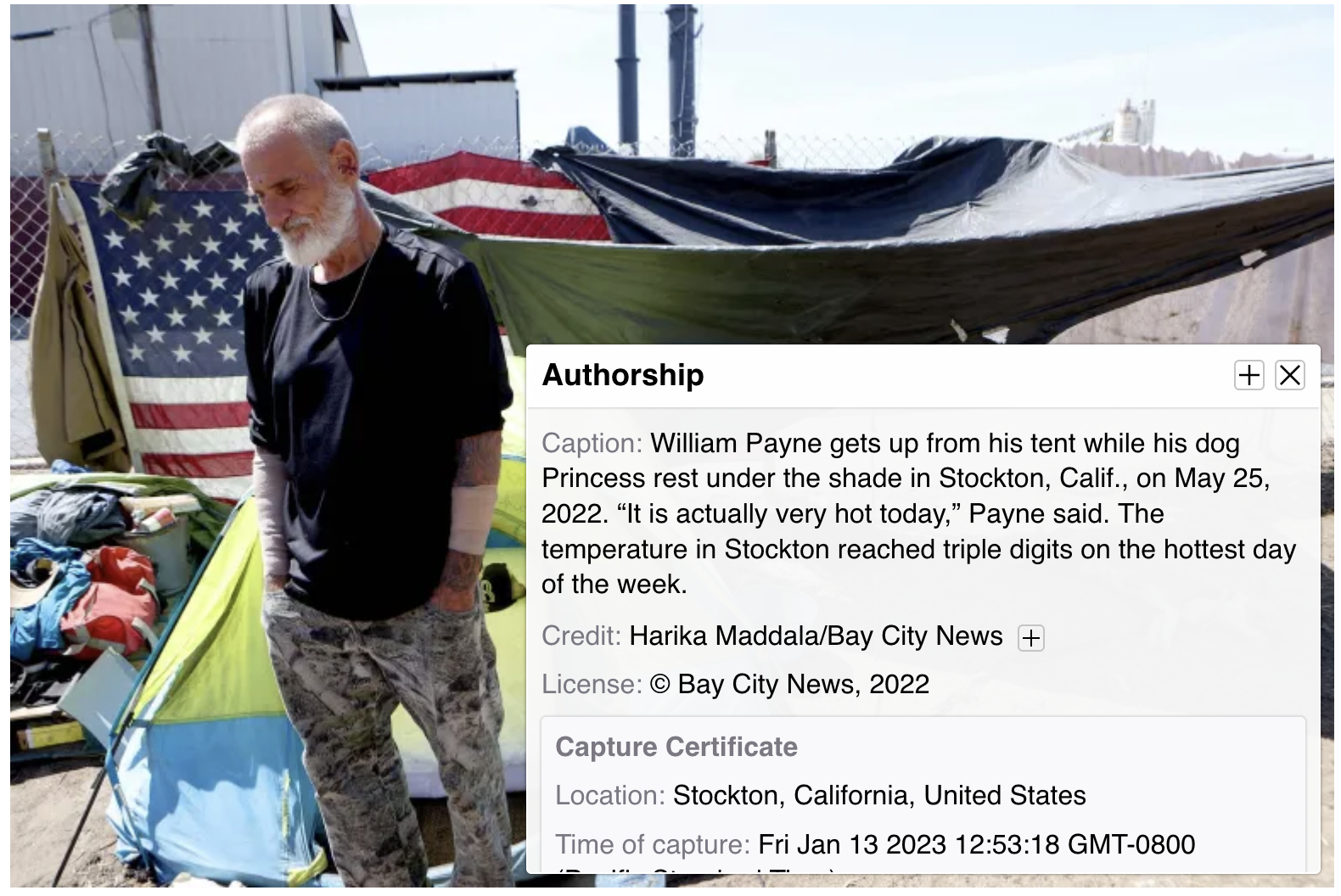On November 30, 2022 OpenAI released its ChatGPT, capping a chaotic and somewhat dystopian year with a chatbot capable of engaging in cogent (if very boring) conversation. Immediately following the release of ChatGPT, educators of all kinds began asking questions about what it means for our ability to decipher bot-generated text from human-written prose; in short, how to tell what is “real” and what is synthetic.
Starling Lab for Data Integrity has been considering these questions of digital authenticity and integrity since it was formed in 2019, via a partnership between USC Shoah Foundation and Stanford University’s Department of Electrical Engineering. Focusing on visual media – photographs and videos – Starling spent the past year refining a “new methodology to restore trust in digital media” with impressive results. Their integrity framework has resulted in high-profile accomplishments that include submitting blockchain-registered evidence to the International Criminal Court (ICC); verifiably documenting illegal environmental burning in Brazil; and collaborating with Rolling Stone to create a detailed investigation of alleged war crimes committed in Bosnia in the 1990s (with a tie-in to the music scene, naturally). All of this work was accomplished with the help of numerous technology collaborators including Filecoin, Storj, Webrecorder, ProofMode, Four Corners Project, Numbers Protocol, and LikeCoin / ISCN.
Hypha members have been an integral part of Starling Lab since 2021. Benedict and Yurko, both founding Hypha members, hold leadership roles at Starling, while other members and collaborators support Starling’s engineering work. At Hypha, we share the belief that Starling’s work is critically important in our rapidly changing digital landscape, as emerging networked technologies present new affordances and unforeseen risks. Here we’re using this space to highlight some of the work accomplished in 2022; a few bright notes in a precarious year.
Verifying photographs from the Bosnian War
As part of its journalism program, Starling Lab worked closely with journalists to report on a story that is both in the past and very much alive today. Back in 1992, in the early days of the Bosnian War, American photographer Ron Haviv spent a day embedded with Arkan’s Tigers, a Serbian combat unit, where he captured a now-infamous photograph during a civilian massacre and alleged war crime. In 2022, Starling worked with Rolling Stone on an investigative story about the soldier purported to be in the photo, and also created an immutable archive of Haviv’s original photos and the digital assets used in the online version of the article.

The DJ and the War Crimes; Rolling Stone, December 2022
Haviv, now a renowned, award-winning photographer, captured on film one of the Bosnian War’s first apparent war crimes. One of the photos has since become a symbol of the war itself. Haviv hoped it would lead to accountability, that it might help save lives.
But 30 years later, many of Arkan’s Tigers present that day still walk free. One of them, in fact, is living a rather public life. You may run into him at a club, depending on where you party. (Source)
International Criminal Court (ICC) submission
The world watched in horror as Russia invaded Ukraine in February 2022. It has become a war fought both on the ground and online, as disinformation muddies our understanding of events. In the wake of the Russian assault on Kharkiv, Ukraine’s second largest city, Starling Lab worked with a Ukraine-based photographer and Hala Systems to capture verifiable evidence of war crimes directed at schools in the city, which was in turn submitted to the ICC in June 2022.

Trustless Evidence: Web3 Is Helping Document War Crimes in Ukraine; CoinDesk, June 2, 2022
While the underlying technology supporting it is complex, the framework is simple in its objectives:
Capture – Register and seal digital content and its metadata at the point of capture.
Store – Govern content via cryptography and preserve it on decentralized networks.
Verify – Record the attestations of experts who evaluate and audit content.
[Starling Lab’s] solution has already started cryptographically authenticating and preserving thousands of records of open-source intelligence from messenger apps, social media and websites that document war crimes as well as create immutable records of fact-checkers’ analyses. (Source)
Exclusive: A crypto-based dossier could help prove Russia committed war crimes; CNN Business, June 10, 2022
Starling’s dossier isn’t a typical exhibit. Instead, the group’s submission will feature publicly available online information that’s been preserved and verified using the blockchain technology behind cryptocurrencies, in what it says is the first submission of evidence of its kind to any court of law. (Source)
Starling Lab and Hala Systems file Cryptographic Submission of Evidence of War Crimes in Ukraine to the International Criminal Court; USC Shoah Foundation, June 10, 2022
Amidst escalating attacks against Ukraine’s second largest city, a global team of experts worked quickly to preserve and authenticate a complex evidence base. Using photos, video, web scraping, sourced from social media and messaging platforms, engineers and lawyers worked together to produce an unbroken chain of evidence on the decentralized web. (Source)
Trustless Evidence: Starling Lab on Documenting the War in Ukraine; FIL Lisbon, November 1, 2022
We decided that what we really wanted to do was actually work in partnership with Ukrainians to figure out a way to document these war crimes, and we gave the name to this project, Project Dokaz, which is the Ukrainian word for proof or evidence. (Source)
Monitoring deforestation in the Pantanal
In Brazil’s Pantanal, the world’s largest tropical wetland, huge swaths have been burned in the past several years. For this project, Starling Lab used Four Corners technology to display the authenticity information for the images taken for this article.

In Brazil, the World’s Largest Tropical Wetland Has Been Overwhelmed With Unprecedented Fires and Clouds of Propaganda; Inside Climate News, September 30, 2022
According to a 2021 paper published by Science Direct, this type of land-use change, coupled with increasingly dry conditions caused by climate change and poor governance of fire management, has brought the Pantanal to a tipping point.
But the deliberate push by Bolsonaro and those close to him to spread disinformation about the causes and effects of the fires has brought it even closer, the president’s critics say. (Source)
Supporting local journalism
In contrast to big, sensational stories like the Rolling Stone piece, Starling Lab’s Journalism Fellowship supported the kind of local journalism that’s becoming increasingly scarce as small papers fold, or are bought by media empires that run syndicated coverage. Bay City News’ project on the homeless crisis in Stockton, California, is one example of this type of work.
Starling Lab Project: Documenting Stockton’s homeless; Local News Matters, 2022

Bay City News has created an authenticated “time capsule” of images documenting the Bay Area’s homelessness crisis while transparently tracking data from relevant government agencies. (Source)
In 2022, Starling Lab tested assumptions about its integrity framework and matured its ‘capture, store, verify’ pipeline; in 2023, Starling will streamline its processes to ensure they can be used and reproduced by people who need tools to fight misinformation.
Hypha is excited to continue this important collaboration in the coming year, diving deeper into the authenticity of different media types with more robust capture technologies, and implementing emerging innovations in verifiable computations.